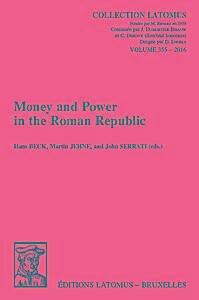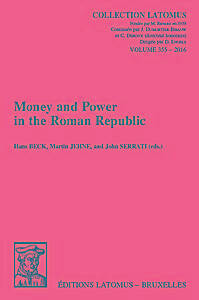
- Afhalen na 1 uur in een winkel met voorraad
- Gratis thuislevering in België vanaf € 30
- Ruim aanbod met 7 miljoen producten
- Afhalen na 1 uur in een winkel met voorraad
- Gratis thuislevering in België vanaf € 30
- Ruim aanbod met 7 miljoen producten
Zoeken
Money and Power in the Roman Republic
€ 45,00
+ 90 punten
Omschrijving
Rome's transformation from a regional force in Latium into a Mediterranean superpower (4th to 1st centuries BCE) was accompanied by an accelerated change of economic realities. The persistent influx of vast natural and monetary resources from abroad deeply altered the basis of Rome's military. As income skyrocketed, the exercise of political influence at Rome became increasingly intertwined with issues of personal finance. Despite claims for frugality, the political power of senatorial families was always determined through the accumulation of wealth. By the 1st century BCE, the competition of these families for rank and recognition was dramatically wrapped up with access to monetary capital and economic resources. When the republic finally fell, this was also due to a financial crash that hit the very centre of Roman society. Examining monetary and financial assets, this volume discloses how economic power and 'real' capital augmented the nature of aristocratic power at Rome. Papers are grouped in three topical clusters: Currencies of Power, Money and State Action, Wealth and Status.
Specificaties
Betrokkenen
- Uitgeverij:
Inhoud
- Aantal bladzijden:
- 238
- Taal:
- Engels
- Reeks:
- Reeksnummer:
- nr. 355
Eigenschappen
- Productcode (EAN):
- 9789042933026
- Verschijningsdatum:
- 3/05/2016
- Uitvoering:
- Paperback
- Formaat:
- Trade paperback (VS)
- Afmetingen:
- 160 mm x 239 mm
- Gewicht:
- 439 g

Alleen bij Standaard Boekhandel
+ 90 punten op je klantenkaart van Standaard Boekhandel
Beoordelingen
We publiceren alleen reviews die voldoen aan de voorwaarden voor reviews. Bekijk onze voorwaarden voor reviews.










